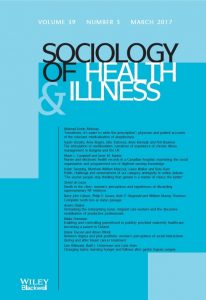Dear Progressive Friends: Do You Actually Care About Criminal Justice Reform?
My Facebook newsfeed is filled with petitions to remove Judge Perksy, “the Stanford Rape judge”, off the bench. And I am pissed. Here is a judge who listens to a criminal defendant’s story and considers it in sentencing – doing exactly what a judge should do, and progressive America is up in arms about it! Not only did Judge Perksy order an individualized sentence that considered mitigating factors, he offers the same, holistic consideration to the accused in his...








1728-4457/asset/PopulationCouncilLogo.jpg?v=1&s=03074651676b98d6b9d0ef1234bd48fe7ff937c3)
1530-2415/asset/SPSSI_logo_small.jpg?v=1&s=703d32c0889a30426e5264b94ce9ad387c90c2e0)